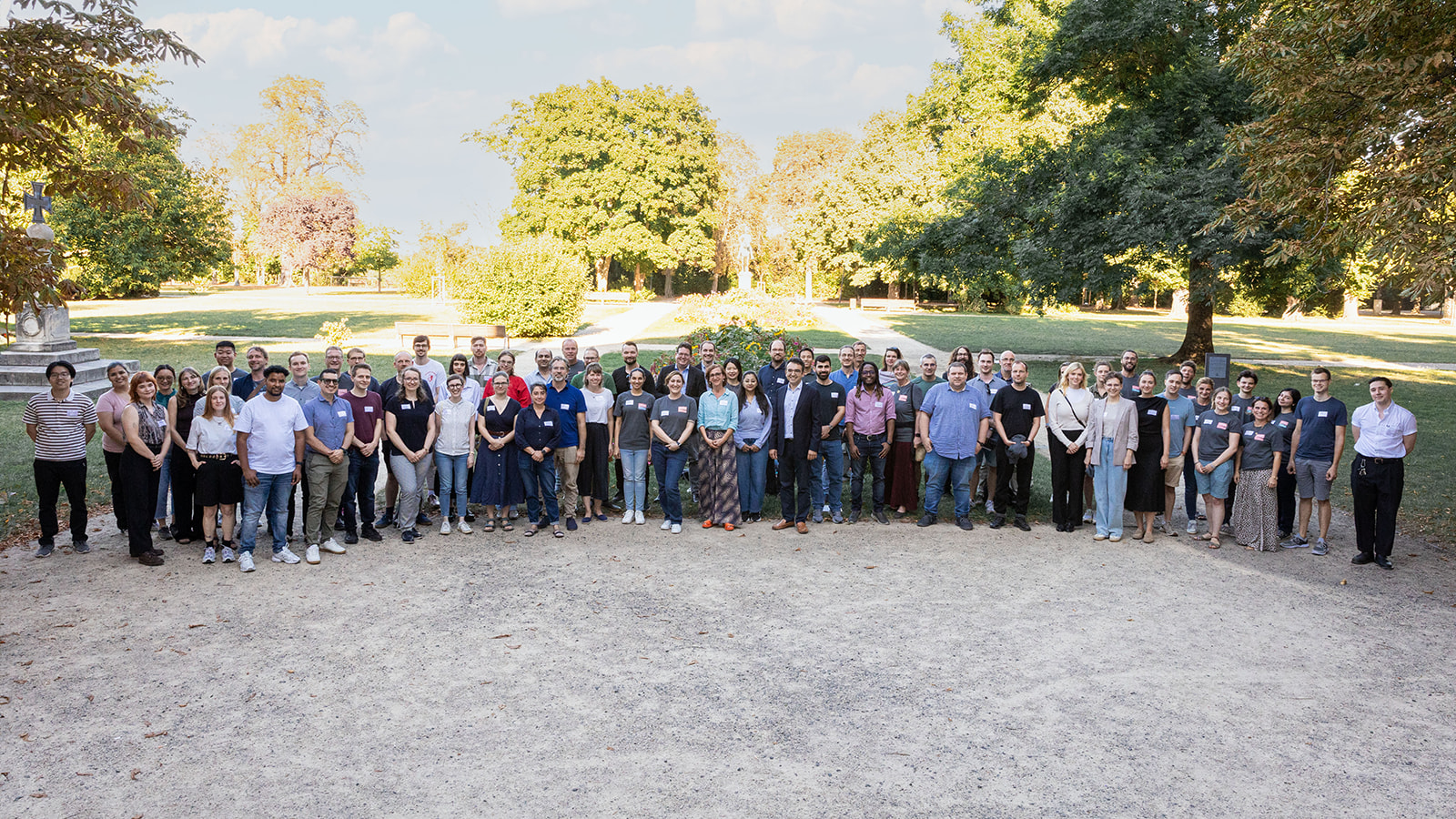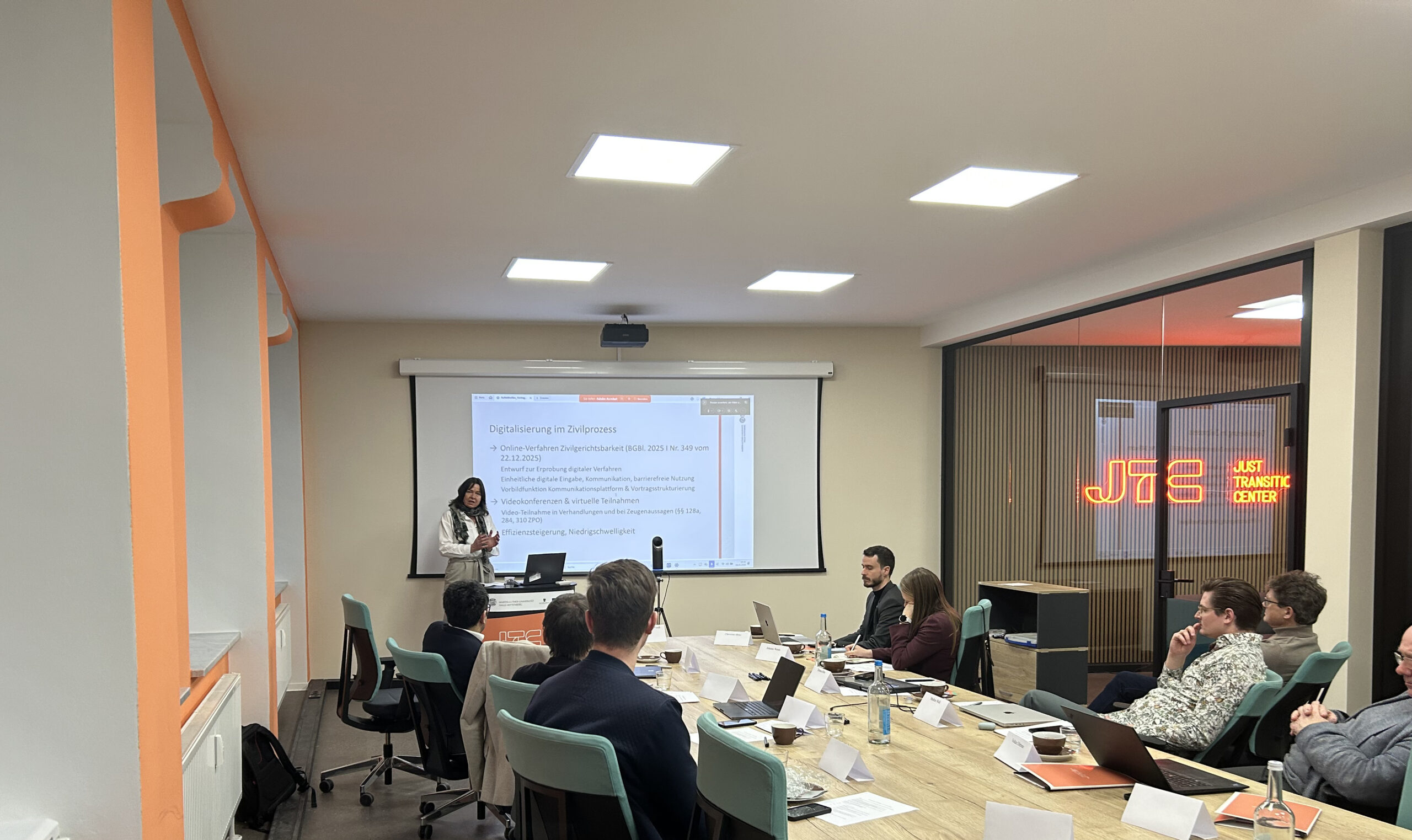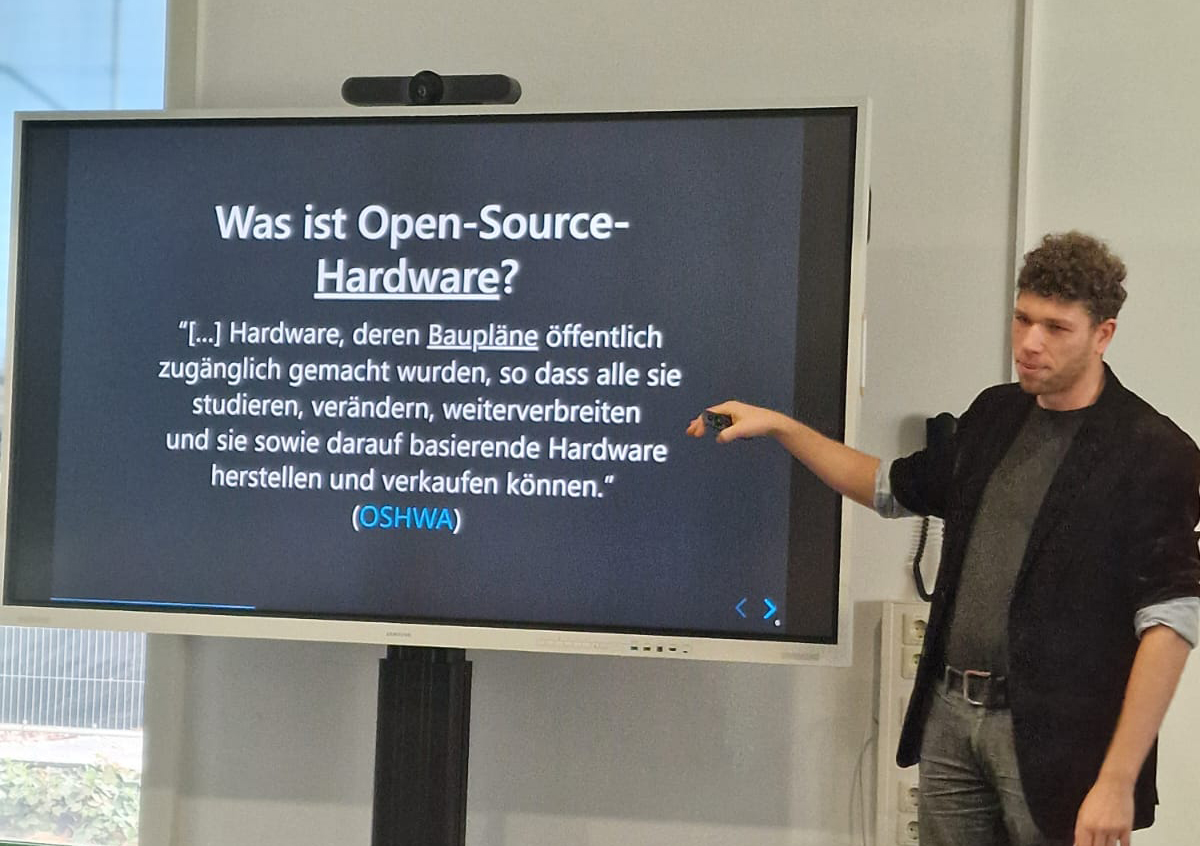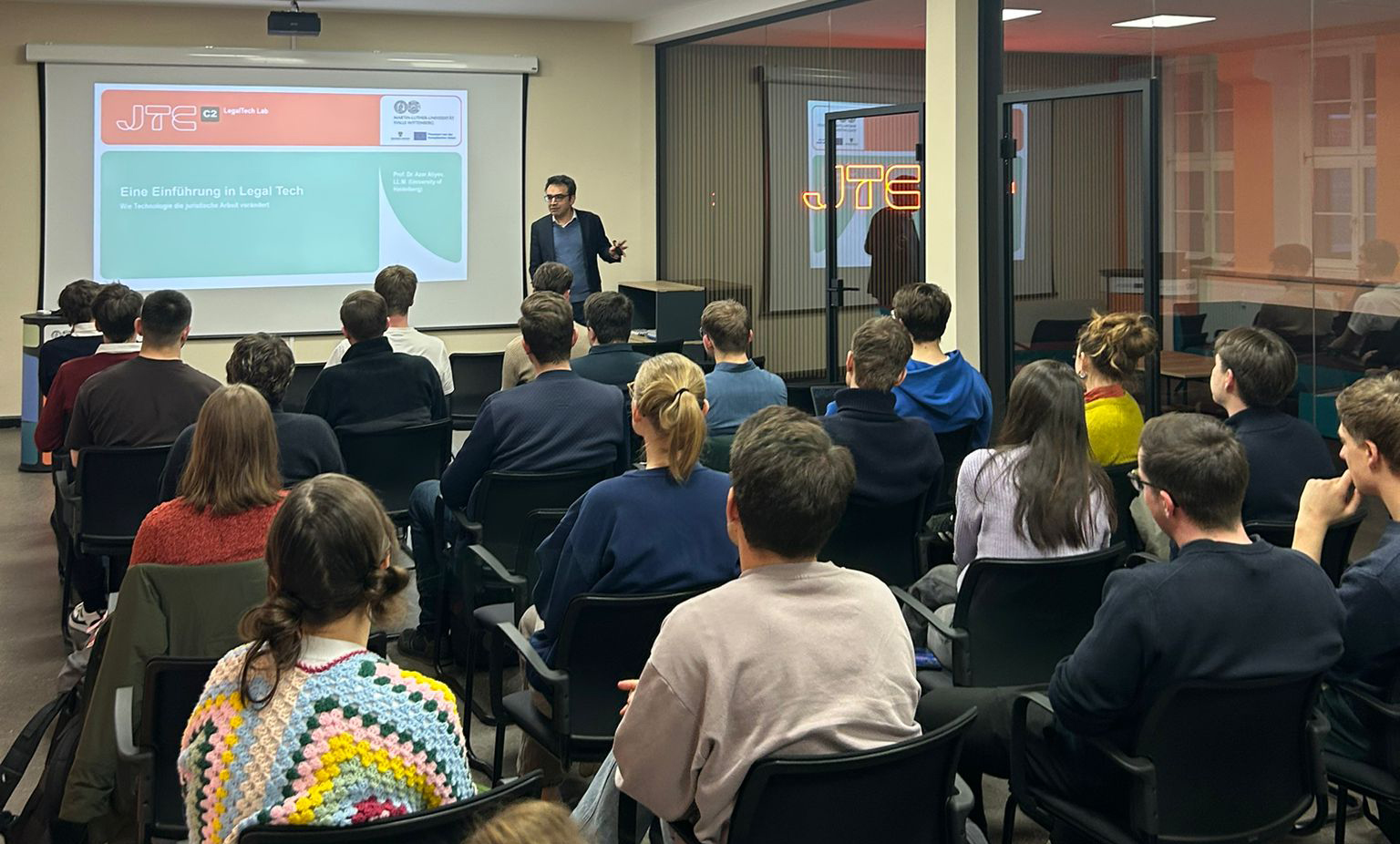Welcome
The whole team of Just Transition Center welcomes you at our new website. Take a look at our work and get in touch if you have any queries.

News
Events
„Interoperability regulation in the EU: Opening iOS and Android for Free Software”
From January 31 to February 1, 2026, the annual FOSDEM (Free and Open Source Software Developers' European Meeting) conference will take place in Brussels.
“Conflict – Space – Emotion: Understanding and working with local conflicts”
In Erfurt, researchers and practitioners will come together at the end of February 2026 for the LoKoNet conference “Conflict – Space – Emotion: Understanding and working with local conflicts”.
Coming and Staying – Tensions Between Rupture and Continuity in Regional Structural Change
From 22–25 March 2026, the 30th Congress of the German Educational Research Association (DGfE) will take place in Munich under the theme “Brüche.” The Innovation Team A4 from the Just Transition Center (JTC) will be participating.
München, 80539
About us
The Just Transition Center (JTC) deals with questions of the day after tomorrow for a just, sustainable and climate-neutral transition.
Our approach is a two-way transfer between science, society, and business, in which scientific findings are translated into applied innovations, and practical experiences are examined in research.
Teams
Just Transition Society (HALIS)
Mission
Your content goes here. Edit or remove this text inline or in the module Content settings. You can also style every aspect of this content in the module Design settings and even apply custom CSS to this text in the module Advanced settings.
Executive board
Prof. Dr. Jonathan Everts
Coordinators
Pia Kahlfuß
Felix Schiedlowski
Assistance
Katja Antal
Samantha Pfeiffer
Sustainable Materials Technology
(CSME)
Mission
Your content goes here. Edit or remove this text inline or in the module Content settings. You can also style every aspect of this content in the module Design settings and even apply custom CSS to this text in the module Advanced settings.
Executive board
Prof. Dr. Ralf Wehrspohn
Assistance
Denise Göpfert
Simone Stahn
Labs
Mission
Your content goes here. Edit or remove this text inline or in the module Content settings. You can also style every aspect of this content in the module Design settings and even apply custom CSS to this text in the module Advanced settings.
Executive board
Prof. Dr. Christian Tietje
Assistance
Babette Günther
Innovation teams
Transferincubator
Mission
Your content goes here. Edit or remove this text inline or in the module Content settings. You can also style every aspect of this content in the module Design settings and even apply custom CSS to this text in the module Advanced settings.
Executive board
Dr. Susanne Hübner
Assistance
Ines Schmiegel
Team
Coach for transfer and founding
Gabriel Kolar
Entrepreneurial Skill Development
Christian Buchner
Revierscouts
Four Revier Scouts are out and about in the districts of southern Saxony-Anhalt to recruit stakeholders for collaboration with the JTC, report on our successes and find suitable locations for spin-offs. They are people “from here”, know their way around and have excellent networks.
Revier
Burgenlandkreis
RevierMansfeld-Südharz
RevierAnhalt-Bitterfeld
RevierHalle-Saalekreis
Publications
Here you can search for publications by our research teams as well as publications by the Just Transition Center itself.
Click here for a list of our publications.
Our Policy Papers you find on this external website.



